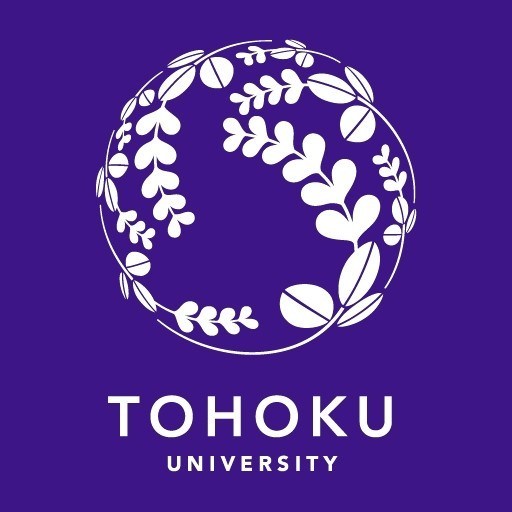Photos of university
Tohoku University, Japan newly founded the International Graduate School of Accounting Policy (IGSAP) in April, 2015 and shortly start admitting students from many countries to begin study from October, 2015. IGSAP students will earn master's degrees awarded by Tohoku University upon completing two years of course work.
The IGSAP is a unique master’s degree program run jointly by universities and partner business professional institutions in Japan and overseas. The principal mission of the IGSAP is to turn out “professionals" of accounting policy, who will lead the resolution of a variety of serious problems in global, national and local societies. We believe that they will be able to solve the problems by applying transnational human networks and advanced knowledge of accounting, finance and public policy.
IGSAP offers a lot of Lecture / Seminar courses in the main three Subjects. IGSAP has the main three Subjects: Accounting Systems Design, Finance of SMEs, and Modern Public Policy, and four communication literacy courses: Japanese Business Communication, English Business Communication, Cross-section of Multi-culture, English Composition for Research Paper and Master Thesis.
These courses are to be held from October to January and from April to July.
About six Lecture courses are given in each of the three Subjects as follows;
Accounting Systems Design
- Accounting System Design
- Financial Accounting
- Tax Accounting
- Management Accounting
- Accounting in Asia
- Seminar Class for Master Thesis or Research Paper
Finance of SMEs
- History of Finance for SMEs
- Management of SME Bank
- Scoring Model
- Cash Flow Management and Corporate Finance
- Operational Management and Information Systems
- Organization and Human Resource Management
- Seminar Class for Master Thesis or Research Paper
Modern Public Policy
- Global Politics
- Environmental Issues and Sustainable Developments
- Global Health
- Scientific Technology and Human Being
- Public Policy Formation in Practice
- Seminar Class for Master Thesis or Research Paper
Internship and Field Study
Students can engage in internship or field study in business organizations or government offices offered by Public Organization Institute of Accounting Policy (collaborative organization between academia and profession) or foreign collaborative universities.
Internship and field study is to be held every year in February and March or August and September. Internship and field study classes are not given in those 4 months.
Students can make a research paper in the second year of IGSAP. If it is evaluated AA, the students can proceed to the Ph.D. program of the Graduate School of Economics and Management. In case students enrolled based on Double Degree MOU between IGSAP and a partner university, they can submit a master thesis to both university and can get dual degrees.
Master Thesis or Research Paper
Students can make a Research Paper in the second year of IGSAP. If it is evaluated AA, the students can proceed to the Ph.D. program of the Graduate School of Economics and Management. If they wish, in case every Double Degree student is requested to submit a Research paper (or an MA thesis) to bothe his / her home instiution and Tohoku University in order to obtain Double Degrees awarded by the both institution.
- Bachelor's degree to apply for Master's program
- Undergraduate transcript
- Certificate of (expected) completion or of degree conferral
- One letter of recommendation from your academic advisor or equivalent
- Study Plan (1,000 words in English)
- General Test score for the GRE
- Score Report of GMAT (Graduate Management Admission Test) (optional)
- 1 Photo ID and examination admission ticket
- Written recommendation
- Basic academic ability: Grade point average (GPA) 2.30 or higher out of 3.0
- English proficiency: TOEFL (iBT: 79), IELTS (6.0), etc.
- Entrance examination Fee JPY 30,000
- Entrance Fee JPY 282,000
Financial aspects of the Accounting Policy program at Tohoku University encompass a comprehensive overview of tuition fees, scholarship opportunities, financial aid options, and cost management strategies available to students. The tuition fee structure is established annually by the university, reflecting current educational policies and funding requirements. As of the latest available data, undergraduate programs typically charge approximately 535,800 Japanese Yen per year, while postgraduate courses may vary depending on the specific faculty and program. Additional costs such as living expenses, accommodation, textbooks, and personal expenses should also be considered when budgeting for studies at Tohoku University.
Students pursuing the Accounting Policy program are encouraged to explore various scholarship programs offered by the university, government agencies, and private foundations. Tohoku University provides numerous scholarship options, including merit-based scholarships, need-based grants, and research funding opportunities tailored to both domestic and international students. Moreover, international students may be eligible for specialized scholarship schemes designed to promote global academic exchange. Application procedures, eligibility criteria, and funding amounts vary across different scholarship programs, and it is advisable for prospective students to consult the university's official scholarship webpage for detailed information and deadlines.
Financial aid resources such as student loans, work-study programs, and part-time job opportunities are also available, assisting students in managing their expenses during their academic tenure. The university offers counseling services to help students plan their finances effectively and understand the full scope of their financial commitments. Additionally, the cost of living in Sendai, where Tohoku University is located, is relatively affordable compared to larger metropolitan areas like Tokyo or Osaka, which positively impacts the overall affordability of studying at the university.
In terms of long-term investment, students should consider the potential return on investment associated with obtaining a qualification in Accounting Policy, which can lead to career advancement in accounting firms, corporate finance departments, or governmental agencies. The university's strong ties with industry partners and a dedicated career support center provide valuable resources for internship placements, job hunting, and professional development.
Overall, financing studies at Tohoku University requires careful planning and utilization of available financial resources. The university's commitment to supporting students financially is demonstrated through its various scholarship and aid programs, designed to make high-quality education accessible. Prospective students should regularly review official university communications and attend informational sessions to stay informed about new funding opportunities and changes in fee structures. By leveraging these resources and planning accordingly, students can successfully undertake their Accounting Policy studies without undue financial burden, ensuring a focus on academic and professional growth.
The Accounting Policy program at Tohoku University is designed to provide students with a comprehensive understanding of accounting principles, financial reporting, and policy development within both domestic and international contexts. Situated within the university’s Faculty of Economics, this program aims to equip students with the analytical skills and theoretical knowledge necessary to interpret and formulate accounting policies relevant to various industries and organizations. The curriculum emphasizes the importance of regulatory frameworks, ethical considerations, and the evolving standards in the global financial environment, preparing students for careers in accounting, auditing, financial management, and policy advisory roles.
Students enrolled in this program benefit from a rigorous academic structure that combines lectures, case studies, and practical exercises. The coursework covers core topics such as financial accounting, managerial accounting, corporate law, tax policy, and the development of accounting standards. Special attention is given to the integration of Japanese accounting practices with international standards such as IFRS, reflecting the nation’s position in the global economy. The program also includes seminars and workshops led by industry experts and academics, providing real-world insights and networking opportunities.
Research and internships constitute a vital part of the curriculum, allowing students to gain practical experience and understand the application of accounting policies in real business contexts. Tohoku University maintains strong connections with local and international corporations, government agencies, and professional accounting bodies, thus enabling students to participate in projects and internships that enhance their practical understanding and employability.
Graduates of the Accounting Policy program are well-prepared to pursue professional certifications such as CPA or CMA, and many go on to careers in accounting firms, financial institutions, government agencies, or corporate finance departments. The program also lays a strong foundation for those interested in academic or policy research careers. Given the university’s commitment to fostering innovation and excellence, students are encouraged to participate in interdisciplinary studies and international exchange programs, broadening their perspectives and cultural competence.
In summary, the Accounting Policy program at Tohoku University offers a detailed and practical education in accounting standards, policy development, and financial management, preparing students for leadership roles in the global financial sector. The program emphasizes both theoretical understanding and practical skills, supported by experienced faculty members, industry collaborations, and a vibrant academic community.









